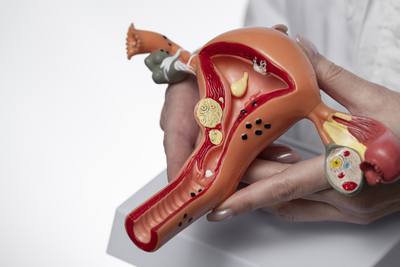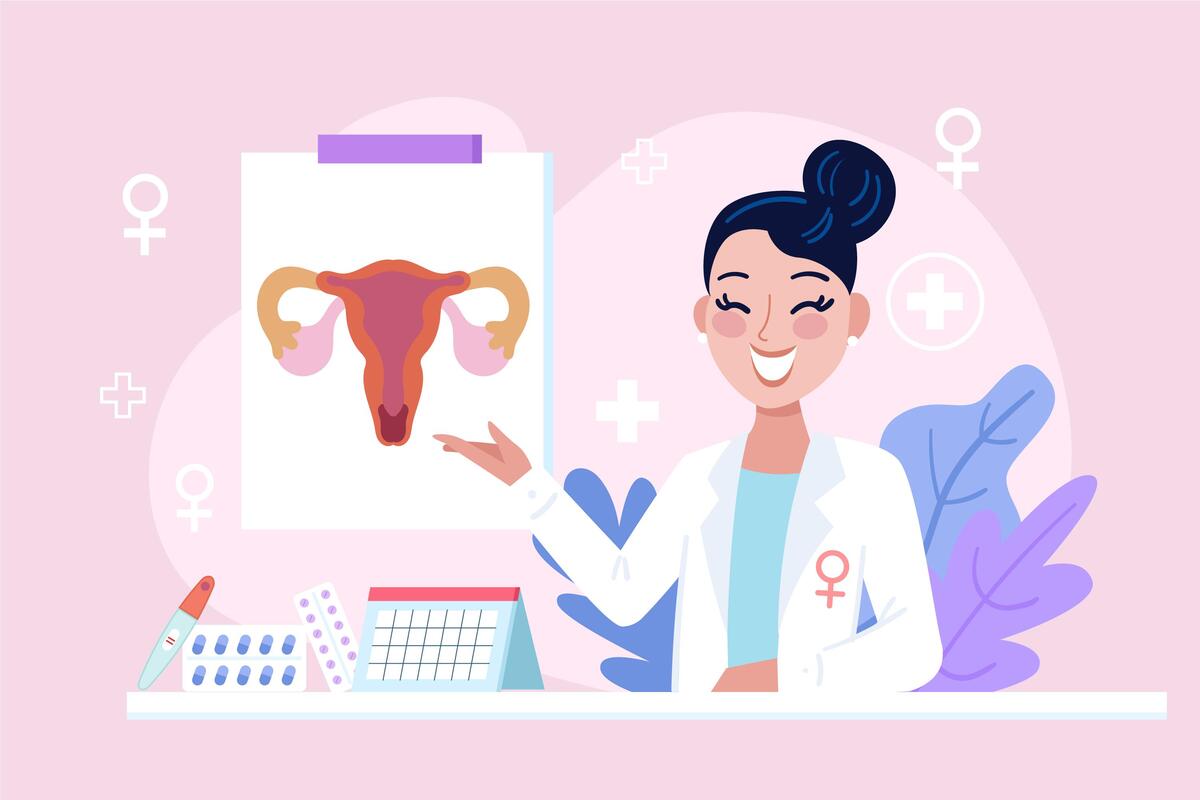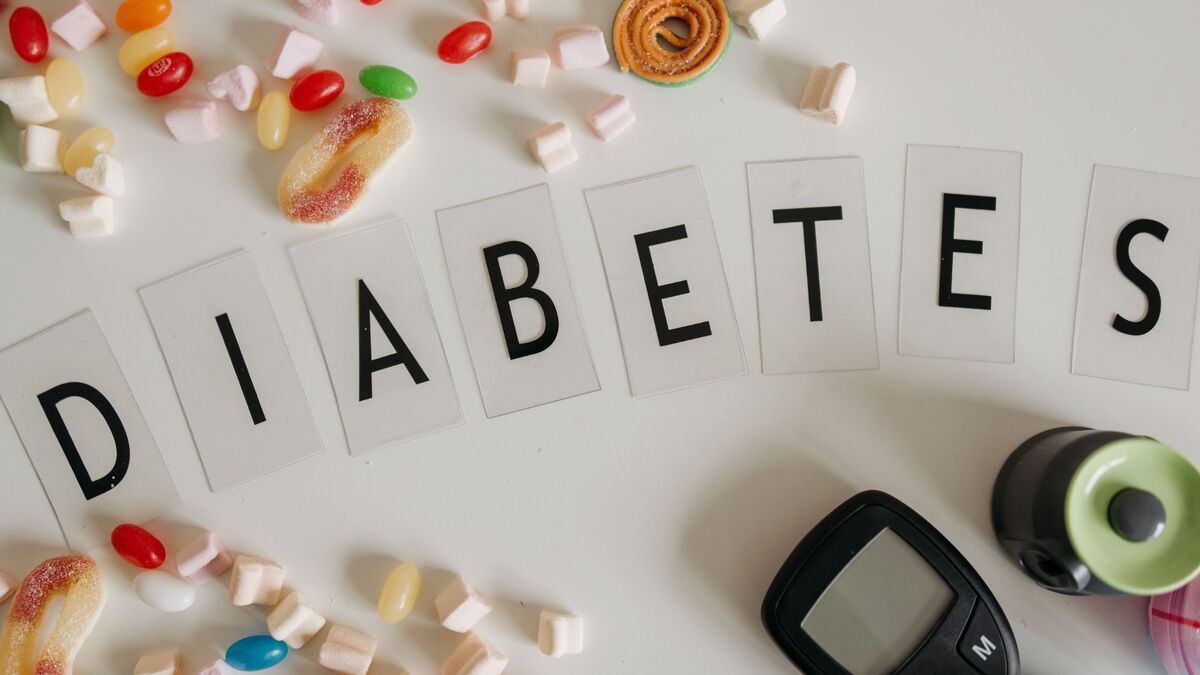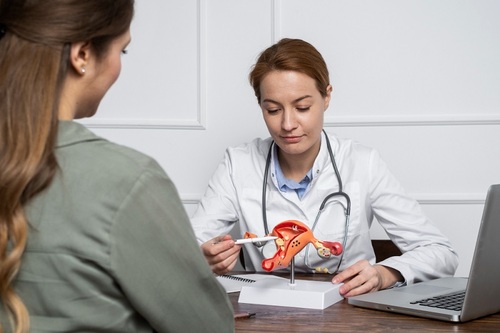Polycystic Ovary Syndrome (PCOS) stands as a multifaceted enigma in the realm of women’s health, affecting millions worldwide. Like a puzzle with many missing pieces, PCOS presents with a myriad of symptoms, from irregular menstrual cycles to unwanted hair growth, acne, and beyond. Yet, beneath its surface lies a complex interplay of hormonal imbalances, genetic predispositions, and metabolic disturbances. As we start this exploration of polycystic ovary syndrome, we unravel the intricate web of its symptoms, delve into the mysteries of its causes, and illuminate the path toward effective treatment options. Join us on this journey as we navigate the landscape of PCOS, shedding light on its complexities and empowering women with knowledge to confront this condition head-on.
What is Polycystic Ovary Syndrome (PCOS)?

PCOS is a hormonal disorder that impacts women during their reproductive years, typically between the ages of 15 and 44. The condition is characterized by hormonal imbalances, irregular menstrual cycles, and the presence of small cysts on the ovaries, hence the name “polycystic ovary syndrome.” These cysts are actually follicles, which are sacs filled with fluid, forming within the ovaries.
Symptoms of PCOS:
PCOS manifests differently among individuals, and its symptoms can vary in severity. Common signs and symptoms include:

- Irregular menstrual cycles: Women with PCOS often experience irregular periods, which can be infrequent or prolonged.
- Excess androgen levels: Androgens are male hormones that are also present in females. Elevated levels of androgens in women with PCOS can lead to symptoms such as acne, excess facial and body hair (hirsutism), and male-pattern baldness.
- Polycystic ovaries: The presence of multiple small cysts on the ovaries can be detected through medical imaging, such as ultrasound.
- Weight gain and difficulty losing weight: Many women with PCOS struggle with weight management, and excess weight can exacerbate symptoms.
- Insulin resistance: PCOS is often associated with insulin resistance, a condition in which the body’s cells become less responsive to the effects of insulin, leading to high blood sugar levels and an increased risk of type 2 diabetes.
- Infertility: PCOS is one of the leading causes of female infertility due to irregular ovulation or lack thereof.
- Mood changes: Some women with PCOS may experience mood swings, depression, or anxiety.
Causes of PCOS:

The exact cause of PCOS remains unknown, but several factors are believed to contribute to its development:
- Genetics: There is evidence to suggest that PCOS may have a genetic component, as it tends to run in families.
- Hormonal Imbalances: PCOS is characterized by disruptions in hormone levels, particularly androgens, insulin, and luteinizing hormone (LH).
- Insulin Resistance: Insulin resistance is common in women with PCOS and is thought to contribute to the hormonal imbalances associated with the condition.
- Inflammation: Chronic low-grade inflammation may play a role in the development of PCOS, although the exact mechanisms are not fully understood.
- Lifestyle Factors: Poor diet, sedentary lifestyle, and stress may exacerbate symptoms of PCOS.
PCOS Treatment Options:
While there is no cure for PCOS, various treatment options are available to manage its symptoms and reduce the risk of complications:
- Lifestyle Modifications: Adopting a healthy lifestyle, including regular exercise and a balanced diet, can help manage weight, improve insulin sensitivity, and alleviate symptoms of PCOS.
- Medications: Several medications may be prescribed to address specific symptoms of PCOS, such as hormonal birth control pills to regulate menstrual cycles, anti-androgen medications to reduce excess hair growth and acne, and insulin-sensitizing drugs to improve insulin resistance.
- Fertility Treatments: For women struggling with infertility due to PCOS, fertility treatments such as ovulation induction with medications or assisted reproductive technologies like in vitro fertilization (IVF) may be recommended.
- Management of Complications: PCOS increases the risk of various health complications, including type 2 diabetes, high blood pressure, and heart disease. Therefore, it is essential to manage these conditions through appropriate medical interventions and lifestyle changes.
- Psychological Support: Living with PCOS can take a toll on mental health due to its impact on fertility, body image, and overall well-being. Counseling and support groups can provide emotional support and coping strategies for women with PCOS.
In-depth Look at PCOS From Symptoms to Treatment:
Conclusion:
In conclusion, navigating Polycystic Ovary Syndrome (PCOS) can be challenging, but understanding its symptoms, causes, and treatment options empowers individuals to take control of their health. By recognizing the signs early, seeking medical advice, and embracing lifestyle changes, those affected by PCOS can effectively manage their condition and mitigate potential complications. While PCOS may present hurdles, it’s important to remember that with the right support and proactive approach, individuals can lead fulfilling lives, breaking through the barriers posed by this complex syndrome.
FAQs:
Irregular menstrual cycles, excess hair growth, acne, weight gain, and infertility are common symptoms of PCOS.
While the exact cause is unknown, factors such as genetics, hormonal imbalances, insulin resistance, and inflammation contribute to PCOS development.
Diagnosis typically involves a combination of medical history review, physical examination, blood tests to assess hormone levels, and imaging tests like ultrasound to detect ovarian cysts.
Treatment may include lifestyle modifications, such as diet and exercise, medications to regulate hormones and improve insulin sensitivity, fertility treatments, and management of associated health conditions.
PCOS cannot be cured, but symptoms can be managed effectively with proper medical care and lifestyle adjustments.










